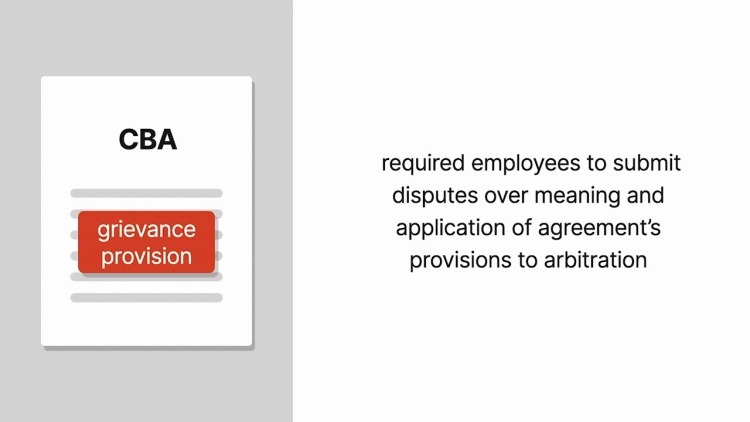United Steelworkers of America v. Warrior & Gulf Navigation Co.
United States Supreme Court
363 U.S. 574 (1960)
- Written by Rose VanHofwegen, JD
Facts
Warrior & Gulf Navigation Company (defendant) transported steel products by barge. The United Steelworkers of America (plaintiff) represented employees who maintained and repaired the barges. The parties’ collective-bargaining agreement (CBA) prohibited strikes and subjected disputes “as to the meaning and application of [its] provisions” to arbitration, except “matters which are strictly a function of management.” However, the provision also said that “[s]hould differences . . . or any kind of local trouble arise,” then the parties had to use the grievance-arbitration procedure. The union had tried for years to get a covenant that prohibited contracting out work, without success. Warrior contracted out the work and laid off most of the maintenance employees. The contracted companies used Warrior supervisors to lay out the work, hired some laid-off workers at reduced wages, and even assigned some back to Warrior’s barges. The union filed a grievance and sued to compel arbitration. The district court dismissed and the appellate court affirmed, reasoning that the management-functions clause excepted contracting out work from the grievance-arbitration requirement. The Supreme Court granted review.
Rule of Law
Issue
Holding and Reasoning (Douglas, J.)
Concurrence (Brennan, J.)
Dissent (Whittaker, J.)
What to do next…
Here's why 907,000 law students have relied on our case briefs:
- Written by law professors and practitioners, not other law students. 47,100 briefs, keyed to 996 casebooks. Top-notch customer support.
- The right amount of information, includes the facts, issues, rule of law, holding and reasoning, and any concurrences and dissents.
- Access in your classes, works on your mobile and tablet. Massive library of related video lessons and high quality multiple-choice questions.
- Easy to use, uniform format for every case brief. Written in plain English, not in legalese. Our briefs summarize and simplify; they don’t just repeat the court’s language.





